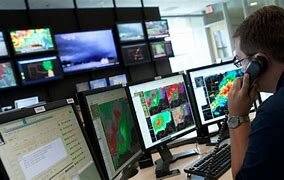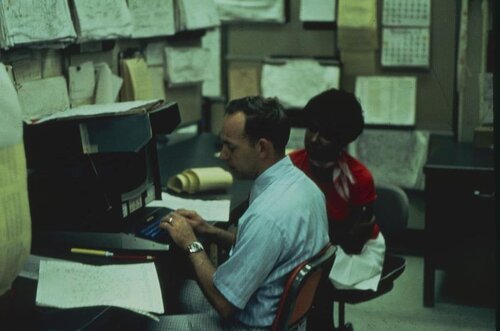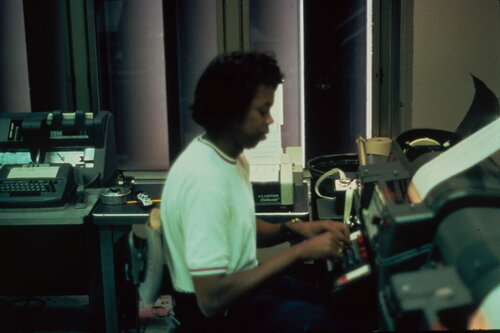We know that the National Weather Service provides the people of United States information to keep us informed on our current and future weather.
What many others may NOT know is the inside workings of the organization and its work environment, ethic, quality, and how it operates.
For anyone who knows and wants to share, what is there to discuss regarding the National Weather Service?
-Have you worked for them? What did you do?
-What are your opinions on the quality of work performed at the NWS? Quality of weather models?
-What kind of future does the NWS hold?
-What major accomplishments can it be known for?
-How does the NWS compare to other nation's weather services?
Feel free to respectfully discuss all there is possible about the NWS in this thread.
I worked for the NWS from 1979 to 2014, when I retired. During the first half of my career, I took the typical path from met intern to journeyman forecaster to lead forecaster (all at forecast offices). In 1996, I jumped into the administrative side of the organization as a program manager at a regional office, then on to supervising employees at a Center Weather Service Unit at a FAA Air Route Traffic Control Center. I eventually reached GS-14 status as the manager of the weather training unit at the FAA Academy.
Overall, I would give the NWS a B+ to A- on quality of work. Models were few in the late 70s and 80s...GFS...EURO...LFM. Back when I started, we would receive a suite of paper maps of satellite images and the forecast models on paper via fax machine. We would then analyze the maps and apply our best knowledge/experience to type (into AFOS) public zone forecasts and aviation forecasts (FTs, TWEBs). Some forecasters took the time to hand-plot and analyze hourly or three-hourly surface maps. Severe weather warnings were based on viewing the WSR-57 radar display. Of course, we did have sounding plots and indices such as the KI, LI, and wind shear. Our work was definitely "human-driven."
Since the early 1990s, NWS work has become machine-driven. During this modernization era, there has been an explosion in science and technology...AWIPS...WSR-88D...grid-to-graph technologies...digital transformation to a streamlined end-to-end forecast process...severe storm warning polygons. Forecasters in this new era manipulate fields of model output via graphics interface and let the machines send out the suite of products via the Internet or other communication networks.
I believe the quality and quantity of weather models have improved. Compared to what I faced in my early years, forecasts have more than enough (perhaps too much) data. There is support provided by regional and national offices regarding model performance. Since the introduction of higher resolution models (e.g. HRRR), forecasters have had to be aware that greater detail in time and space may not equate to higher accuracy.
It seemed to me that the NWS was always "a step ahead" of private weather services in our country. I did not have enough contact with weather agencies in other countries to render a similar assessment.
I believe the top accomplishments include:
- Increase of lead time on tornado and other severe weather events
- Development of an extensive local, regional, and national data collection network to support both climate and forecast programs
-More weather-aware/smart public through Warning Coordination and other outreach programs.
These have all contributed to saving more lives, protecting more property, and helping people live better lives.
So, what does the future of the NWS look like? Many parts of the organization have been contracted-out or handed off the the private sector over the past 40 years...upper air (rawinsonde) program...surface observation program...pilot weather briefings, weather training for air traffic controllers...etc. I expect this trend to continue. At some point, even the severe weather warnings may be handed off to the private sector. This might be the end to the NWS. A lot of this will be driven by politics [which is where I will stop.]






